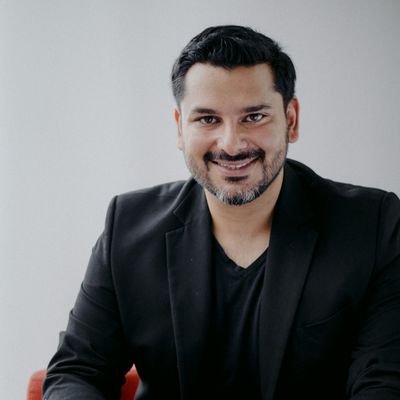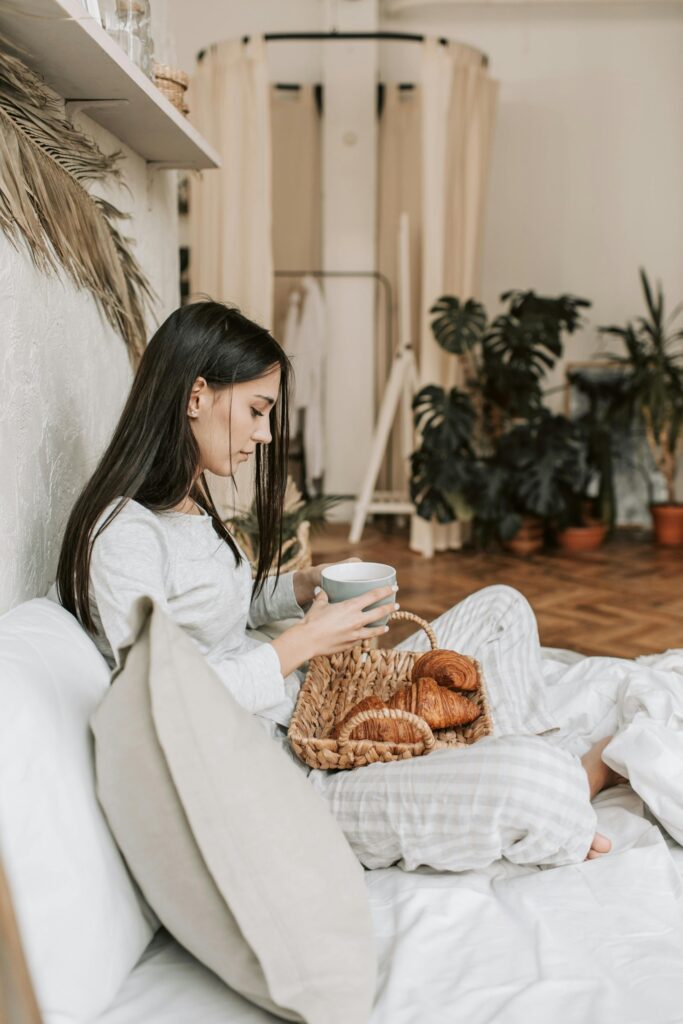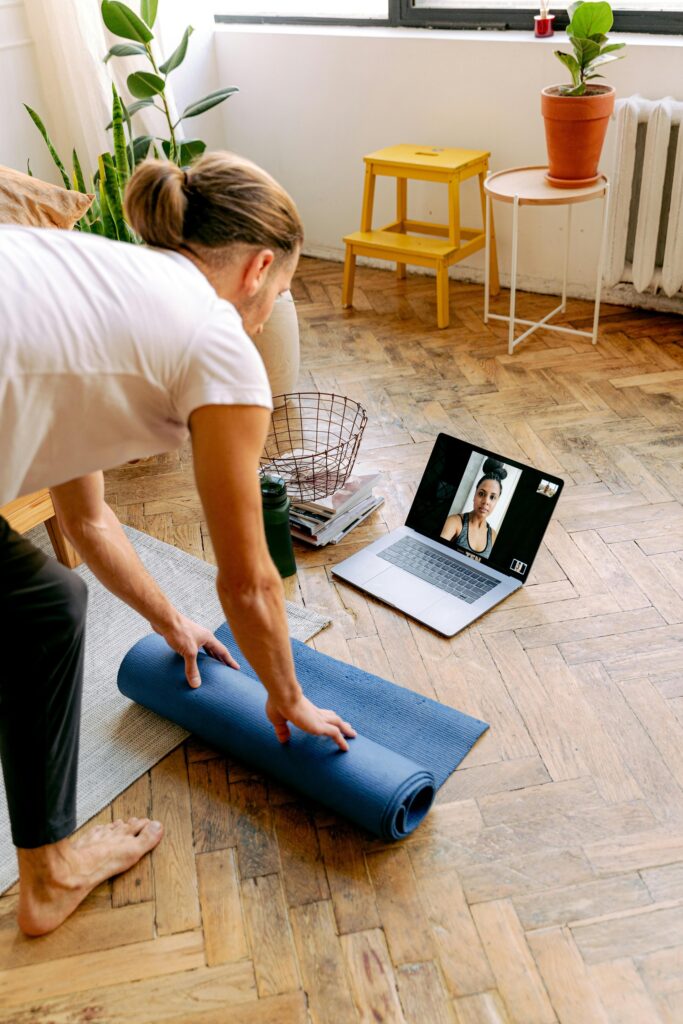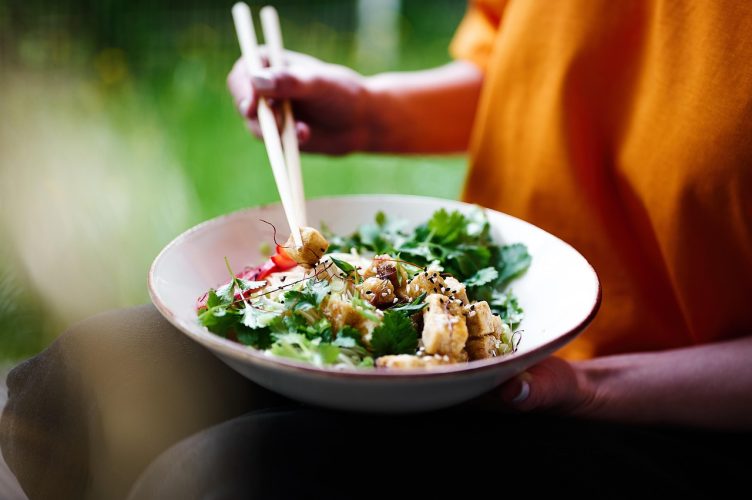
Whenever people talk about AI in health, the focus goes to apps, gadgets and tracking. But the more I have explored this on The Wellness Algorithm, especially in the AI Wellness Revolution episode, the more I have realised that technology is only part of the picture.
What stayed with me from my conversation with Tushar Vashisht is the reminder that AI is not here to replace intuition or human connection. It helps us notice what we usually miss, like patterns, blind spots and defaults, and turn them into kinder choices. That has changed how I see digital wellness. It is not about collecting more data, it is about removing the guesswork from understanding ourselves
Whenever people talk about AI in health, the focus goes to apps, gadgets and tracking. But the more I have explored this on The Wellness Algorithm, especially in the AI Wellness Revolution episode, the more I have realised that technology is only part of the picture.
What stayed with me from my conversation with Tushar Vashisht is the reminder that AI is not here to replace intuition or human connection. It helps us notice what we usually miss, like patterns, blind spots and defaults, and turn them into kinder choices. That has changed how I see digital wellness. It is not about collecting more data, it is about removing the guesswork from understanding ourselves

For many people, the problem isn’t discipline, it is the effort of logging. Most can track meals for a few days before it feels tiring. Photo logging changed that. You take a picture and the system interprets it. No judgment, just simple prompts. If lunch is late, it suggests a walk. If dinner is heavy, it recommends shifting protein the next day. One small step at a time.
Even the healthcare world is noticing the power in these micro-corrections. A 2025 review in The Impact of Artificial Intelligence on Healthcare showed how everyday AI tools are helping people make healthier lifestyle choices without overwhelm.
Here’s what I’ve learned while testing this on myself: AI gives precision. Humans give persistence. The app can calculate macros and timing. A coach helps when life gets messy.

This came through clearly in my conversation with Tushar. As he put it, “People love talking to an AI because it’s real time, you get feedback instantly, and it can swim through a lot of your data.” That’s the speed. But empathy? Accountability? That still has a human face.

Here’s what I’ve learned while testing this on myself: AI gives precision. Humans give persistence. The app can calculate macros and timing. A coach helps when life gets messy.
This came through clearly in my conversation with Tushar. As he put it, “People love talking to an AI because it’s real time, you get feedback instantly, and it can swim through a lot of your data.” That’s the speed. But empathy? Accountability? That still has a human face.
I love food, and I’m not aiming for a life of constant restriction. What works is choosing better options on most days and celebrating the days that deserve it. AI doesn’t take the joy away. It helps me pick something I’ll enjoy that won’t drain my energy. And if I overindulge, it offers a recovery plan without judgment. The joy stays and the guilt doesn’t.
Sleep often reflects our habits before we notice them. Many people try to fix it with gadgets or strict routines, but the real issues usually sit in everyday patterns like stress at night, irregular meals or late screens. This is where AI can quietly help, not by adding more to do but by spotting what we miss.
This isn’t just anecdotal. A narrative review on AI in healthcare found strong results in AI-powered sleep guidance for stress-linked insomnia and circadian rhythm disruption.

I’m not someone who enjoys tracking every bite or staring at charts. I come from a time when you listened to your body, not your phone. So I only track what genuinely helps me choose better. A quick photo of a meal, sleep data from my watch, steps and the occasional lab. I look at it once a week, not every day. I am not chasing numbers. I just want gentle guidance, not perfection.
Sleep often reflects our habits before we notice them. Many people try to fix it with gadgets or strict routines, but the real issues usually sit in everyday patterns like stress at night, irregular meals or late screens. This is where AI can quietly help, not by adding more to do but by spotting what we miss.
This isn’t just anecdotal. A narrative review on AI in healthcare found strong results in AI-powered sleep guidance for stress-linked insomnia and circadian rhythm disruption.
I’m not someone who enjoys tracking every bite or staring at charts. I come from a time when you listened to your body, not your phone. So I only track what genuinely helps me choose better. A quick photo of a meal, sleep data from my watch, steps and the occasional lab. I look at it once a week, not every day. I am not chasing numbers. I just want gentle guidance, not perfection.

Most people imagine the future of wellness with more devices and screens. I do not. What interests me is a quieter version of tech, where voice replaces tapping through apps, sunlight adjusts on its own and breakfast reflects how you slept. Even the idea of a workout shifting because your body is tired feels human. What matters most is the freedom to say “not today” and still feel in charge.
Even global health systems are moving in that direction. A report in Nature Medicine noted that AI is now guiding real health decisions quietly, not just counting sleep or steps. The goal is not to give up control, but to remove the noise so we can focus on living rather than logging.

For me, the real promise of AI is not the technology, it is the relief. It takes away the guesswork, quiets the guilt, and reminds me that even if yesterday was chaotic, I can make one small and smart choice today. But it is the humans, my coach, my community, the people I share meals and missteps with, who turn actions into identity.

Most people imagine the future of wellness with more devices and screens. I do not. What interests me is a quieter version of tech, where voice replaces tapping through apps, sunlight adjusts on its own and breakfast reflects how you slept. Even the idea of a workout shifting because your body is tired feels human. What matters most is the freedom to say “not today” and still feel in charge.
Even global health systems are moving in that direction. A report in Nature Medicine noted that AI is now guiding real health decisions quietly, not just counting sleep or steps. The goal is not to give up control, but to remove the noise so we can focus on living rather than logging.
For me, the real promise of AI is not the technology, it is the relief. It takes away the guesswork, quiets the guilt, and reminds me that even if yesterday was chaotic, I can make one small and smart choice today. But it is the humans, my coach, my community, the people I share meals and missteps with, who turn actions into identity.

| Cookie | Duration | Description |
|---|---|---|
| cookielawinfo-checkbox-analytics | 11 months | This cookie is set by GDPR Cookie Consent plugin. The cookie is used to store the user consent for the cookies in the category "Analytics". |
| cookielawinfo-checkbox-functional | 11 months | The cookie is set by GDPR cookie consent to record the user consent for the cookies in the category "Functional". |
| cookielawinfo-checkbox-necessary | 11 months | This cookie is set by GDPR Cookie Consent plugin. The cookies is used to store the user consent for the cookies in the category "Necessary". |
| cookielawinfo-checkbox-others | 11 months | This cookie is set by GDPR Cookie Consent plugin. The cookie is used to store the user consent for the cookies in the category "Other. |
| cookielawinfo-checkbox-performance | 11 months | This cookie is set by GDPR Cookie Consent plugin. The cookie is used to store the user consent for the cookies in the category "Performance". |
| viewed_cookie_policy | 11 months | The cookie is set by the GDPR Cookie Consent plugin and is used to store whether or not user has consented to the use of cookies. It does not store any personal data. |